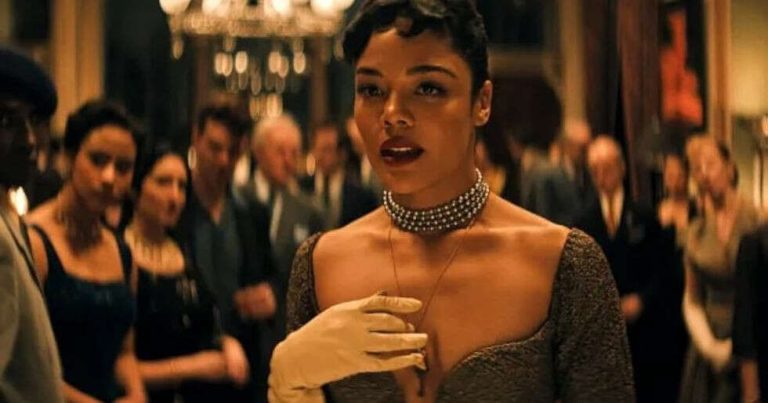Filmmaker Nia DaCosta puts a modern and a queer twist to Henrik Ibsen’s 1891 play Hedda Gabler, with her latest film Hedda. Instead of traditional retelling, Nia brings in major narrative shifts, the most significant being the introduction of a queer storyline. Eilert Lovborg, originally Hedda’s ex-lover, becomes Eileen Lovborg, a women who not only shares a past with Hedda but is also vying for the same professorship as Hedda’s husband, George Tesman.
Speaking at a global press conference, where Filmfare was present, Nia opened up about these choices and what excited her to dig into the many layers of this story. She shared, “My initial read of Hedda was when I was falling in love with theater and falling in love with Ibsen. The play is so fascinating. Hedda is so enigmatic, ineffable and horrifying but also vulnerable, funny, sexy, loathsome and lovable. She is a complex creature. I wanted to follow all the things that really got under my skin about the play. Changing Eilert Lovborg to Eileen Lovborg was one of the first things I thought of.”
Explaining the reason behind it, Nia continued, “It was really a series of questions and what ifs after reading the play. What if Eilert were a woman? What if we set this in the 1950s? What if Tessa Thompson played Hedda? And how could I still maintain the beating heart of the original piece, the thing that made it so vital in its time? And I was also thinking how can I make it vital in mine? That was the beginning of the road for me.”
She further opened up about her bond with Hedda star Tessa Thompon and her decision to cast the actress in the film. “Tessa and I’ve been great friends for over 10 years now and we made my first film together. I am constantly imagining movies because I am always filled with ideas, ‘thinking this could be cool, this could work.’ Sometimes I’d have these half form thoughts and just call her to ask, ‘What do you think about this? Does this mean anything to you?’ I was writing a couple other things at the time, so I’m sure she was hearing me go on about, ‘I’m writing Hedda’. But it was quite clear that I would ask her to do it eventually. When I wrote the movie and described all the characters as if it’s kind of a play, I basically wrote her. It also speaks about the depth of our relationship, not just as friends, but also as people who love each other’s work and love each other’s minds creatively. And her brain is so beautiful, she’s so smart, and it’s such a relief to be able to cast an intelligent actress, when you are tackling ideas.”

